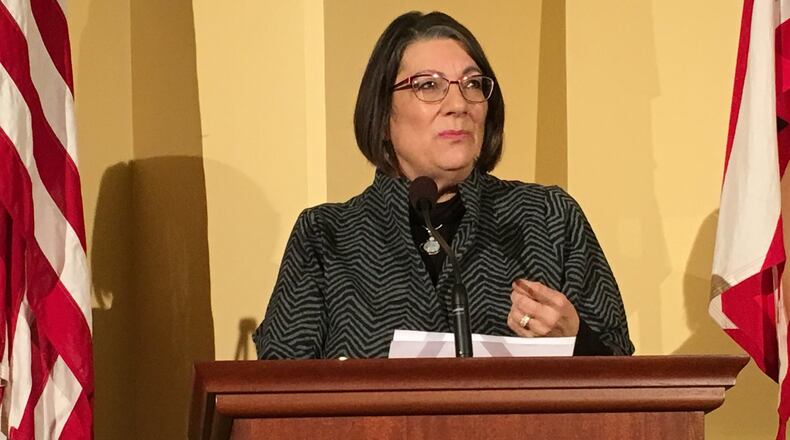Currently, seven House and Senate members identify as LGBTQ. Among them: Sen. Tammy Baldwin of Wisconsin, the lone openly gay U.S. senator; Rep. Jared Polis of Colorado, who is running for governor; and Rep. Kyrsten Sinema of Arizona, who is running for the U.S. Senate.
Of the 21 running, Reynolds said, up to four could win, bringing the tally in Congress to a record 10 (because Polis is leaving).
They are part of a legacy that began with Rep. Gerry Studds, D-Mass., who was forced out of the closet in 1983 thanks to a sex scandal. Between 1996 and 2012, according to Reynolds, no more than three U.S. House members were openly LGBTQ. That rose to a high of eight in 2012.
State legislatures, meanwhile, have a larger representation: Currently, 80 incumbent statehouse members nationally identify as lesbian, gay or bisexual, said Reynolds, the author of The Children of Harvey Milk: How LGBTQ Politicians Changed the World.” He said 250 openly LGBTQ candidates ran in the primary this season, and 47 lost. Ohio, with 10 openly gay candidates running, “is up there in the top five” states for the number of gay candidates on the ballot, he said.
The Ohio candidates include Nickie Antonio, a Democratic state representative from Lakewood who is running for the state Senate; and Democrat Rick Neal, who is challenging Rep. Steve Stivers in central Ohio’s 15th congressional district. The LGBTQ Victory Fund has also endorsed John McManus of Dayton, who is running against state Rep. Jim Butler, R-Oakwood; Taylor Sappington of Nelsonville, who is running against state Rep. Jay Edwards, R-Nelsonville; and Lis Kenneth Regula, a transgender candidate running for Portage County Auditor against the Republican incumbent, Janet Esposito.
“The old saying goes, ‘if you’re not at the table, you’re on the menu,” said Sarah MacBride, national press secretary for the Human Rights Campaign, which advocates for the LGBTQ community. “It becomes much more difficult to look someone in the eye that you work with and deny them the equal protections in the law that you’ve sworn to uphold,” she said.
Sean Meloy, senior political director for LGBTQ Victory Fund, said his organization began backing Antonio after she was term-limited out of the General Assembly. She was the first openly gay member of the Ohio House, and now, he said, he’s hopeful she’ll be the first openly gay member of the Ohio Senate.
Meloy said the number of openly gay candidates running nationwide has nearly doubled over 2016. The group endorsed 272 this year; 224 won their primaries.
“Not all of these folks are going to be successful,” he said, “But the mere fact they’re stepping up to run and are representing the community is historic.”
Reynolds cautioned against high expectations; many of the LGBTQ candidates are running as Democrats in safe Republican seats, he said. Although there are Republican LGBTQ candidates, most are not. Just 16 of the statehouse candidates nationally are running as Republicans, according to Reynolds.
Neal, the Columbus Democrat, introduced himself to voters in January in a web video where he described himself as a public health candidate, a former Peace Corps volunteer, a teacher overseas and “a dad in a very modern family.” The camera then cut to a family photograph of Neal, his husband, Tom Grote, and the couple’s two daughters.
Although someone put racist stickers on the campaign signs in his front yard at one point, most people he’s met on the campaign trail have been supportive, Neal said.
During that two-minute introductory video he posted his email address and urged people to write. He received 1,500 emails.
“Guess what? I did not get one piece of hate mail,” he said.
By the numbers
80: Number of incumbent statehouse members nationally who identify as lesbian, gay or bisexual.
203: Number of LGBTQ candidates running for state legislative seats across the country.
21: Number running for Congress.
10: Number running for the Ohio Statehouse or federal office in Ohio.
7: Number of U.S. House or Senate members who are identify themselves as LGBTQ.
Source: Andrew Reynolds, University of North Carolina Chapel Hill.
About the Author
